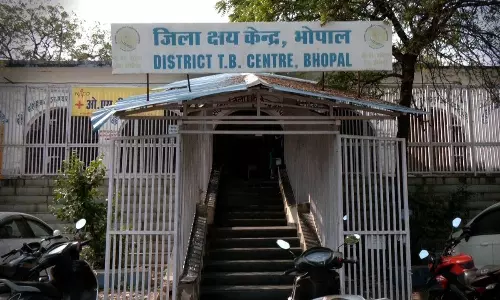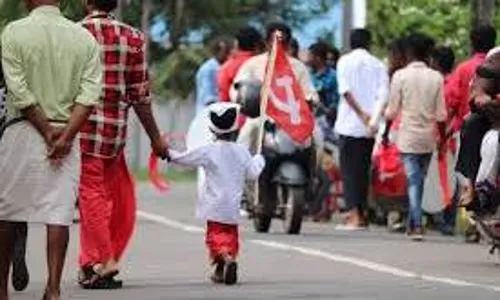
When a people are evicted to death
text_fieldsRohingya detainees step out of a police van upon arriving at the court in the western Myanmar city of Pathein ahead of a hearing on
The Rohingya have been described by the international media and human rights organisations as a people without a country.
The central government had made its stance on the Rohingya Muslims last year itself. Minister of Home Affairs Kiran Rijiju informed the Parliament on September 9, 2017 that the Rohingya Muslims in India were Illegal migrants and hence they should be expelled. It is when the different agencies including the United Nations have been debating the tales of hundreds of Rohingya people getting killed and about 6.5 lakh people fleeing to neighbouring countries following racist attacks that took place in Rakhine, Myanmar, that the Modi government in India announced its totally anti-human 'refugee policy'. The Centre reiterated its stance in the Supreme Court as well, weeks later. In the affidavit filed in the Supreme Court, the Centre says that they have obtained evidence of the links which the Rohingya in India have with organisations such as the IS and ISI and therefore giving asylum to them would affect the national security. But the government had not explained how and when to deport the Rohingya. However, even before the completion of a year, the authorities have handed over seven Rohingya refugees who were captured in Assam to the Myanmar border force last week starting the deportation process. Moves to deport 23 more people in such a way have also reportedly been planned. Now, our government is all set to expel those who have been residing in three Rohingya refugee camps in Delhi. When a people who have been denied ‘citizenship’ and subjected to ethnic cleansing in their own country are sent back, to the same hell instead of being provided asylum, that expulsion can certainly be said to be towards death.
When war, deluge and drought wreaked havoc on Earth, our soil has offered asylum to thousands. Following the invasion of Soviet Union in the 80s, nearly half a lakh Afghans had sought refuge in India. Although they have not been officially recognized as refugees, the then government had not hesitated even a bit to arrange the required facilities for them under the special supervision of the UN refugee agency. The fact that the country had welcomed the Tibetan refugees, the Tamils who were victims of Sinhala racial attacks in Srilanka and the minorities from Pakistan and Bangladesh even amidst all its limitations, shows the continuation of this tradition. When the Arunachal Pradesh state government approached the Supreme Court in 1996 demanding the expulsion of Chakma tribals from the country, the bench headed by Justice Aziz Mushabber Ahmadi had rejected it. The court observed that the Constitution guarantees equality and the right to life not only to the citizens but also to those who reside in the country. The apex court through this verdict, had upheld the very interest of the UN Refugee Agency Convention of 1951 of not driving away those who seek asylum in the country. In other words, this intervention by the judiciary was also a declaration of universal humanity that has been envisaged by our country and the Constitution. It is this tradition which the Modi government has toppled. Add to this the government’s move of putting nearly 40 lakh lives in uncertainty by preparing the citizenship register in order to track down the ‘intruders’ in Assam.
The Rohingya expelled now have been arrested and put in prison by Myanmar's military under Foreign Registration Act. Human rights bodies, including Human Rights Watch, have already reported regarding the torture suffered by the Rohingya in Myanmar prisons. Those cells are in fact torture rooms serving as breeding grounds of third degree methods. The fact is that if at all they escape from there at any time, those people do not have a safe place in that country. For, quite like India and Bangladesh, Myanmar has not recognized them as citizens. They can, if they choose, live as 'Bengalis' in special zones, with limited rights and as victims to attacks by Buddhists. It is when they came to realize that such semi-citizen rights will not guarantee them any security and they would be attacked further, that they migrated to other countries in 2012 and 2017. According to the figures with UN Refugee Agency, there are about 40,000 Rohingyan refugees. Almost half of them have UN refugee cards. As such, not recognizing them and sending them to the whirlpool of death will be not only be inhuman but also constitute a violation of international law regarding safety of refugees. During the mass exodus of refugees from West Asia – when the region was devastated by internal warfare and occupation – to Europe, countries with Germany at the lead were offering citizenship to over a lakh of refugees, bypassing the opposition by far right parties. In the process, those countries also overpowered the heinous politics of racism and narrow nationalism. When a government attempts to embrace a citizenship system on the basis of race, instead of upholding this politics of global humanity, what it ultimately endangers is nothing but our constitutional values.























